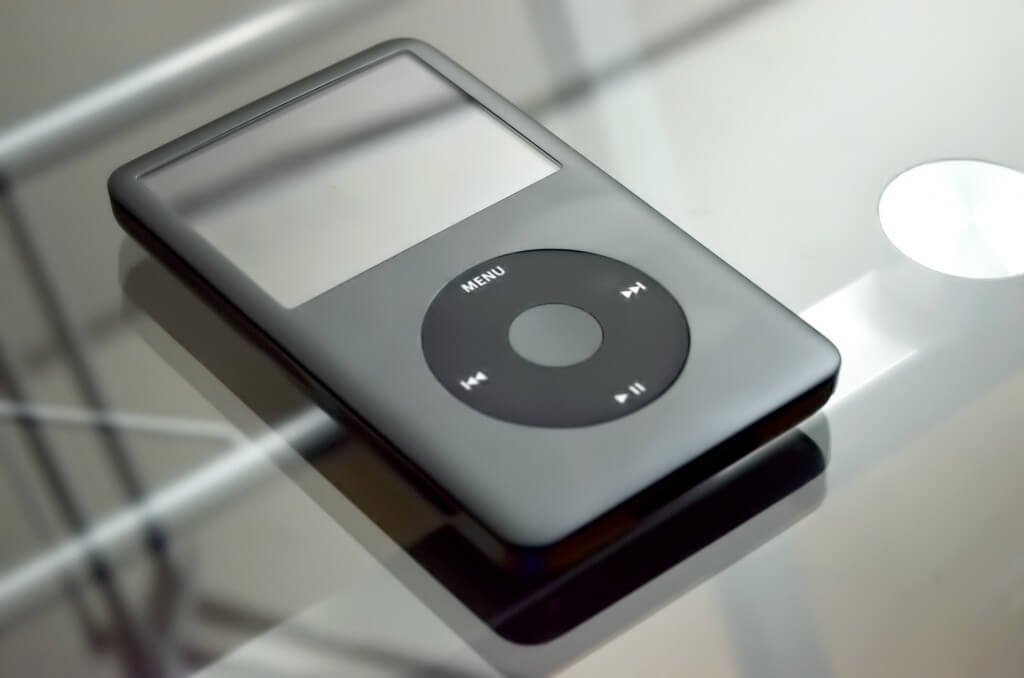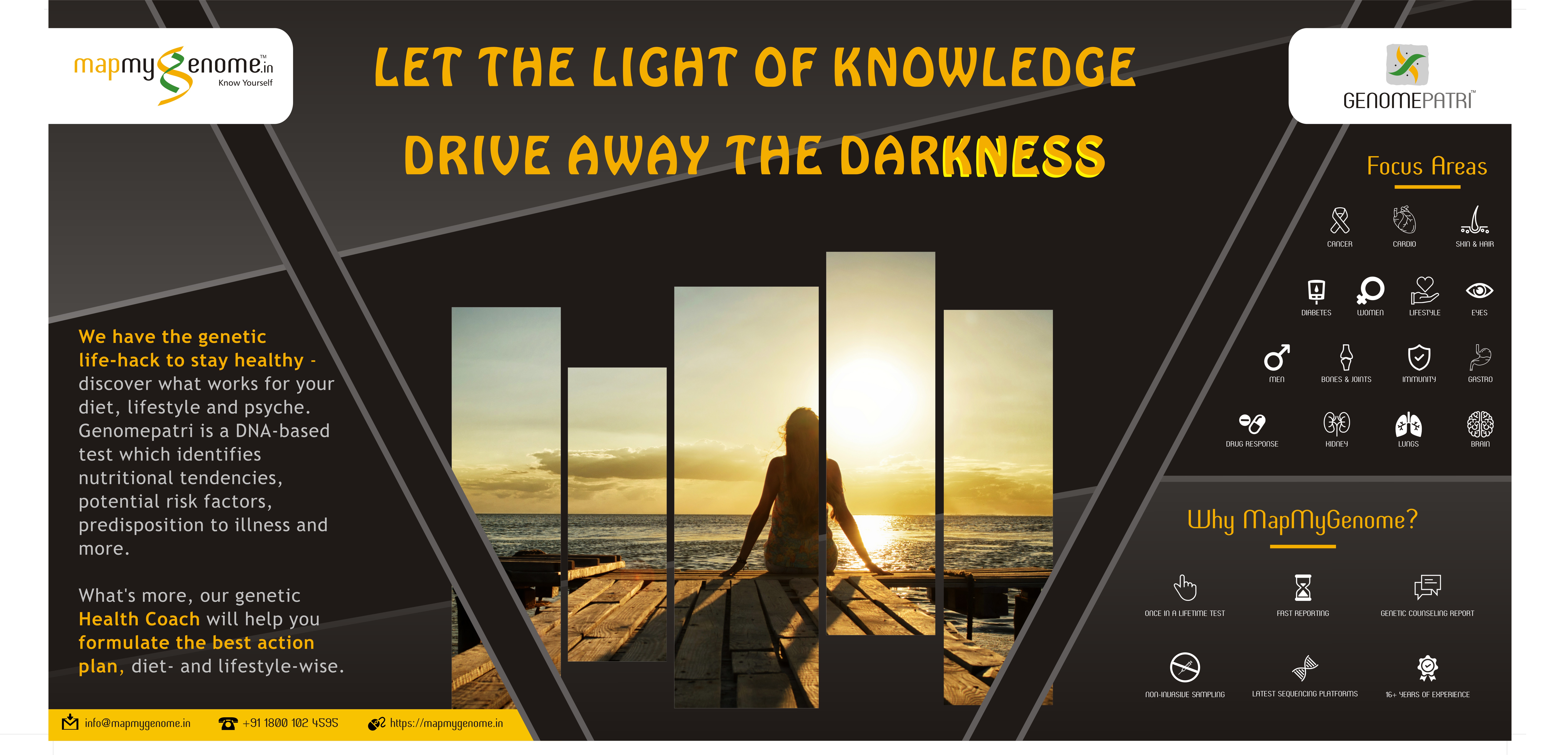Abraham Lincoln: Genetics is the shizz yo!
Jan 04, 2018
26458 Views
Dang!!! You just got Clickbaited!! (Yes I tend to make up verbs!)
OK…Don’t believe everything you read on the internet. No wait, I’ll rephrase – Don’t believe everything blindly. That’s better. Abraham Lincoln probably never said anything about genetics or genomics per se (if he did, my whole life has been built around a lie – that genomics is a modern field of study); but he did speak a few lines that hold relevance in the modern age battle between precision medicine and the reigning king – Traditional medicine.
Had I paid attention in history class, I would have known the context in which these words were uttered, but then again, it was history class. Ugh. Judging by the content, I’m certain it would have been a momentous historic moment – so you can google it if you’re curious.
Anyhow – This is what Abraham Lincoln said at the second annual meeting of the Congress in December 1862:
“The dogmas of the quiet past are inadequate to the stormy present. The occasion is piled high with difficulty, and we must rise with the occasion. As our case is new, so we must think anew and act anew. We must disenthrall ourselves, and then we shall save our country.”
I absolutely love this statement. Each and every bit of it. Each and every sentence in that statement speaks volumes to me, and since this space is under my control, I will break down the whole thing, and reconstruct this amazing, inspirational statement. (Ah the power!)
The beautiful representation of the quintessential foundation of initiating change, the disparity of the past and the present situations being annotated so magnificently; and the use of the word “inadequate” to express the problem. …chills! He does not disregard the “dogmas” of the past, as most leaders do in order to instill a sense of conviction to bring about a paradigm change. The relevance thereof merely changes with changing situations, thereby rendering them inadequate (not obsolete) in the current context.
Notice how he mentions that we need to rise WITH the occasion – not TO it, but with it. Absolutely love this. With great difficulty, I choose to stop myself from elaborating on the beauty of this statement, else this blog post will take on the form of a thesis of dinosaur proportions! (Thesaurus? I wonder…) But I do urge you to briefly pause here and reflect upon the gravity of that statement – rise WITH the occasion.
Lastly – “we must disenthrall ourselves”. Beautiful word, great usage thereof – Disenthrall. I’m certain you know what that means. See, there are ideas that we are all enthralled by, those we take for granted as the natural order of things. There’s but one issue with this romantic attachment with those ideas – Many of our ideas (if not most) have been formed NOT to meet the circumstances of the current time, but the time gone by. Our minds, though, are still hypnotised by them. But times change, circumstances are dynamic, and thus most of those ideas are reduced to being inadequate to meet the need of the hour. If we wish to bring about change; If we strive to initiate a revolution; If we fantasize about rising with the occasion and avoiding stagnation, we must first disenthrall ourselves of some of them.
This is easier said than done. It’s quite difficult to know what you take for granted, because…well you take it for granted.
I’ll elaborate on this thought train with a very simple example…

Are you over the age of 25? Well then, chances are rather high that you own, or at some point of time in your life have owned, an MP3 player/iPod/Zune or the likes thereof. In fact, a majority of us fall into the category of “music-on-the-go-device” owners.
Ask the same question to a bunch of teenagers/pre-teens/school kids, and you’d get a very different statistic. Most of them do not own MP3 players. I’m not saying they can’t or aren’t allowed to; they often choose not to. The reason is elementary, my dear Watson. You see, those of us above 25 were brought up in the “pre-smartphone” era. If you wanted music on the go, you needed a device on you that enabled you to do just that. Kids today live in an extremely digitised world, and music for them is available absolutely everywhere. Phone, tablet, palm-tops (ah well, another obsolete entity), smartwatches (for crying out loud), you name it. They just don’t see the point of carrying an MP3 player – a single-purpose device- in their arsenal of digital yummies. By the way, we don’t need to do this either, but we continue to do so by force of habit; maybe it happens at a spinal level now; maybe it keeps us in touch with a simpler time (hey, I’m not judging!).
Don’t get me wrong here – I’m not implying that the MP3 player was a useless device or it was an insufficient solution to the problem at hand. It simply outlived its purpose. It became a concept we were (and some of us still are) enthralled to.
The same goes for health, and healthcare. There are ideas and practices in healthcare that we are still enthralled to. One of them is the “Reactive approach” practice in health. Traditional medicine, which is the standard of care today, still operates along the “Find it, Fix it” model – If someone is affected by disease or exhibiting symptoms due to an underlying condition; find it, and attempt to fix it. This approach relies on capturing the presence of, or quantifying the levels of certain analytes such as antibodies, enzymes etc which are the clinical endpoints of a disease. Taking it further – CT scans, PETs and MRIs and all other radio-diagnostics, also work along the principle of establishing the presence of a medical condition, thus aiding the healthcare practitioner in creating a strategy to “fix” said condition. Now this is an idea we are all enthralled to. And why shouldn’t we be? It works! And if ain’t broke, don’t fix it right?
Well… I won’t start a war here by calling this a “dogma” of the quiet past, but this ideology we need to partially disenthrall ourselves from. A lot of people, from all walks of life, have implicitly or explicitly discussed the value of prevention being better than cure – A proactive approach to health pitted against the reactive approach model, at some point in their lives. But we have become obsessed with this “Find it, Fix it” narrative, with the pinnacle in healthcare service provision being the act of getting you back from a diseased to an eased state.
The world today embraces the fact that humankind is a veritable gold mine of diversity, and not a beacon of singularity. People are different. With different abilities, different tastes, varied physicalities, divergent choices, disparate ambitions – the list is endless. The world today acknowledges that each individual is unique. Not just at the superficial level, but deep within, right down to his DNA. This doesn’t just hold true from a philosophical perspective, but even from an evolutionary, biological and medical standpoint. And this genetic uniqueness is the foundation stone for the revolution we wish to bring in the healthcare sphere – Personalised, Predictive, Precise and Participatory medicine.

Preventive or personalised medicine follows a different approach to healthcare than the one we see widespread in practice today. It adheres to a “Predict it, Prevent it” model. With the exponential deterioration of a healthy lifestyle, and the rapid adoption of the evil twin thereof, we have witnessed the induction of various diseases (such as Diabetes, Cancers, Cardiovascular diseases and so on) into the realm of “Lifestyle disorders”. This necessitates a change in how we perceive health and care strategies. Genomics and branches thereof are the cornerstone for bringing about this change. Genomics deals with the analysis of a person’s DNA, identification of mutations and/or variations in the genetic sequence, and estimation of the implication of a given mutation towards a physical manifestation (good or bad). In very simple terms – a personal genomic service such as Genomepatri (Well, I had to position my product somewhere now! Stop cringing) identifies genetic variations in a healthy individual, and elaborates on how that mutation affects the individual’s predisposition towards a genetic condition associated with it. It helps “predict” the occurrence of a disease, even in the absence of symptoms, or for that matter, even before it manifests. Trained medical and paramedical professionals can use this information to help establish a “prevention” strategy for each individual, tailored to his or her genetics. Personalization is the shizz yo! (Abe Lincoln?)
Healthcare needs to evolve to…no no, my bad – Allow me to rephrase – We need a revolution not evolution in healthcare.
At the start, I told you Abe Lincoln spoke words which hold true to the genetics debate, now didn’t I? The biggest roadblock to the adoption of preventive medicine isn’t because of some obvious flaw in this approach, but our love affair with the ideas of a bygone era. We are enthralled to the “Find it, Fix it” approach – a strategy that sufficed the need of the quiet past, but one that is inadequate to the demands of this tornado of lifestyle disorders we find ourselves flying through today. The healthcare scenario has changed, and we ought to rise with it. And in order to do so, we need to …Yep you’re spot on…we need to disenthrall ourselves of the ideas we take for granted, and be open to adopting concepts more relevant to the time we live in.
Now re-read what Abe said, and you’ll see that I didn’t really lie at the start...maybe just extrapolated to absurd proportions – circulus in demonstrando FTW!
